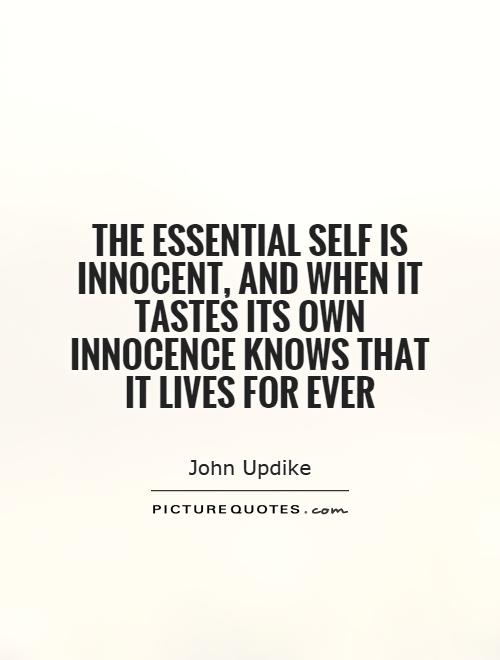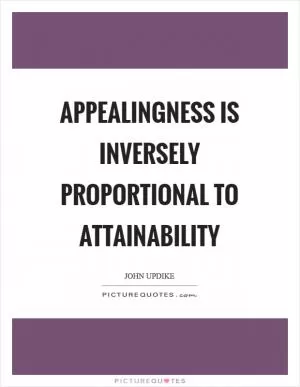The essential self is innocent, and when it tastes its own innocence knows that it lives for ever

The essential self is innocent, and when it tastes its own innocence knows that it lives for ever
John Updike, a prolific American author known for his keen observations of human nature and the complexities of everyday life, often explored themes of innocence and the search for meaning in his works. In the context of Updike's writing, the idea that "the essential self is innocent, and when it tastes its own innocence knows that it lives forever" can be seen as a central theme that runs through many of his novels and short stories.Updike's characters often grapple with questions of identity, morality, and the nature of existence. They are frequently portrayed as flawed individuals who are searching for a sense of purpose and meaning in a world that can be confusing and chaotic. In many of Updike's works, the idea of innocence is closely tied to the idea of the essential self – that core part of a person that remains pure and untainted despite the challenges and hardships of life.
One of Updike's most famous works, "Rabbit, Run," follows the story of Harry "Rabbit" Angstrom, a former high school basketball star who is struggling to find his place in the world. Throughout the novel, Rabbit grapples with questions of morality, responsibility, and the search for meaning in his life. Despite his many flaws and mistakes, Rabbit is ultimately portrayed as a character who is searching for a sense of innocence and purity that he believes will bring him peace and fulfillment.












 Friendship Quotes
Friendship Quotes Love Quotes
Love Quotes Life Quotes
Life Quotes Funny Quotes
Funny Quotes Motivational Quotes
Motivational Quotes Inspirational Quotes
Inspirational Quotes